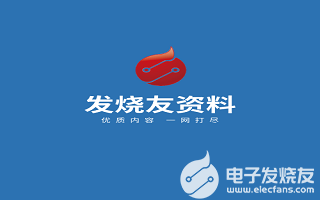商业往事
每月分享几则有趣的商业小故事(中英双语),邀请大家和我们一起透过历史故事,看存储商业。

区分幸运还是努力
本文总计1248字
预计阅读6分钟
(英文文章在中文文章之后)
安妮·杜克获得了 NSF的奖学金,在宾夕法尼亚大学读研究所学「认知心理学」。拿到硕士学位后,她原来打算在学校找一个职位,但由于胃病没有办法去应征。她在医院住了将近一年。
当她在生病待在医院的时候,她决定试试手气,通过玩扑克牌来赚钱。这让他可以消磨时间,呆到下一个学术招聘季(学校招聘新人都有固时间)。然而,这一试却让她发现自己懂得玩扑克牌真正的诀窍。于是,她决定成为一名扑克牌职业选手。2 0 0 4年, 她赢得了自己的第一个世界扑克手镯大赛冠军,同年,她赢得了 2 0 0万美元的赢者者通吃的 WSOP 冠军大赛。而在 2 0 1 0年,她获得了 NBC 全国扑克牌锦标赛的冠军,在最后一个项目上更击败了他的导师埃里克‧塞德尔。
安妮‧杜克出版了一本书「在赌注中思考;当你没有事实依据的时候做出更明智的决定」,这本书描述她如何在(赌局)不确定的情况下做出决定。
她认为;我们的生活更像是玩扑克牌而不是在玩象棋。我们通常需要在有限的信息下做出决定:
「工作和搬家的决定是赌局。销售谈判和合约都是赌局。买房是一种赌局。点鸡肉而不是牛排是一种赌局。一切都是赌局。」
当然, 我们都想努力做出好的决定,但有时,即使我们做了一个糟糕的决定,我们也可能会得到一个好的结果。当然,情况也发生了相反的情况。考虑到我们能掌握的事实,我们做出了正确的决定,但一些没有想到的事情却发生了,让我们的决定变得糟糕。
有很多人把他们的成功归因于努力工作而不是运气。尽管许多有钱的商人公开声称他们的成功是运气造成的, 但这是为了显得谦虚,而不是真的谦虚。在他们的心中,其实,他们相信自己的成功是由于他们的努力。也许他们确实很努力,但他们往往忽视了运气往往是至关重要的因素。然而,安妮‧杜克在她的书中说;运气永远是一个因素,不管我们是否承认:
「在赌局中思考首先要认识到,决定我们生活结果的因素正好有两点:我们决策的质量和运气。学会认识到两者的区别, 才能理解赌局思维中全部意义所在。」
当我们得到一个好的结果时,我们应该区分这个好的结果,是由于我们做出了好的决定还是因为运气。如果我们不正确地区分运气和好的决策,我们很可能会误解为什么我们的成功是因为我们的努力。因此,我们不会从这个成功经验中学到任何有用的经验,这很可能会误导我们今后的决定。不能分别运气和决策质量是一个很大的危险,因为我们无法从中学会任何事,所以我们要强迫自己去审视我们的成功是否因为运气,还是我们的努力。
当然,就像成功可能是由于好运一样,失败也可能是运气不好造成的。但我们自然会寻找失败的理由来自我辩护,所以这通常不是问题。因此,这就是为什么我说;我们应该强迫自己审视我们的成功,看看这些成功的哪一部分是由于我们的努力造成的,还是由于运气造成的。就我个人而言;我认为假设我们成功的有运气的成分,这是很好的。在做这样的分析时,这是一个很好的工作假设或起点。也就是说;问题不在于是这个结果否涉及运气,而在于涉及多少运气。
出处: 安妮‧杜克,「在赌注中思考;当你没有事实依据的时候做出更明智的决定」。Annie Duke, Thinking in Bets: Making Smarter Decisions When You Don’t Have All the Facts.
Distinguishing Between Effort and Luck
Annie Duke received an NSF Fellowship to attend graduate school at the University of Pennsylvania to study cognitive psychology. After getting her master’s, she was going to try to find a teaching position but was unable to do so due to a stomach ailment. Her illness required her to stay in the hospital for nearly a year.
While a patient, she decided to try to make some money by playing poker. That could pass the time until the next academic hiring season. However, she discovered that she had a real knack for poker. So, she decided to become a professional poker player. In 2004, she won her first World Series of Poker bracelet, and that same year she won the US$2 million winner-take-all WSOP Tournament of Champions. And in 2010, she won the NBC National Heads-Up Poker Championship, beating her mentor Erik Seidel in the final event.
Annie Duke published a book, Thinking in Bets: Making Smarter Decisions When You Don’t Have All the Facts, to describe how she makes decisions under uncertain situations.
She believes that our lives are more like poker than chess. We usually need to make decisions under limited information:
“Job and relocation decisions are bets. Sales negotiations and contracts are bets. Buying a house is a bet. Ordering the chicken instead of the steak is a bet. Everything is a bet.”
Of course, we should always strive to make good decisions, but sometimes, even when we make poor decisions, we get good results. And, of course, the opposite happens, too. We make the right decisions given the facts at hand, but something unforeseen happens and causes our decisions to go bad.
There are many people who attribute their success to working hard instead of luck. Although many wealthy business people publicly claim that their success is due to luck in an attempt to appear humble, in their hearts, they really believe that their success is due to their hard work. And maybe they did work hard, but they often overlook the often crucial element of luck. However, Annie Duke says in her book that luck is always a factor, whether we acknowledge it or not:
“Thinking in bets starts with recognizing that there are exactly two things that determine how our lives turn out: the quality of our decisions and luck. Learning to recognize the difference between the two is what thinking in bets is all about.”
When we get a good result, we should try to determine whether the good result was due to making good decisions or due to luck. If we don’t correctly distinguish between luck and making good decisions, we will likely misunderstand why we succeeded. So, we won’t make the proper conclusion from this successful experience, which will likely mislead us in our future decisions. And that’s a big danger. But doing so is not so natural. We basically have to force ourselves to examine whether our success was due to luck rather than our effort.
Of course, just as success may be due to good luck, failure may be due to bad luck. But we usually naturally look for reasons to explain our failures, so that’s usually not a problem. That is why I say that we should force ourselves to examine our successes to see what part of those successes was due to our efforts and what part was due to luck. Personally, I think it’s good to assume that at least a portion of our success is due to luck. That’s a good working assumption or starting point when doing such analysis. That is, the question is not whether luck was involved (it was) but how much luck was involved.
原文标题:商业往事丨第86话:区分幸运还是努力
文章出处:【微信公众号:江波龙电子】欢迎添加关注!文章转载请注明出处。
-
江波龙
+关注
关注
4文章
271浏览量
27012
原文标题:商业往事丨第86话:区分幸运还是努力
文章出处:【微信号:江波龙电子,微信公众号:江波龙电子】欢迎添加关注!文章转载请注明出处。
发布评论请先 登录
相关推荐
SN65DSI86输出信号支持多大的衰减值呢?
直播报名丨第4讲:AI检测系统落地工具详解

直播报名丨第3讲:如何选择合适的算法模块

直播报名丨第2讲:热门AI检测案例解析

树莓派是x86还是arm
蓝牙信标和蓝牙标签我们如何区分,区分方法有哪些?
求助,为什么要区分gui和resource的rest api列表?
四路2输入异或门CD54HCT86、CD74HCT86数据表





 商业往事丨第86话:区分幸运还是努力
商业往事丨第86话:区分幸运还是努力












评论